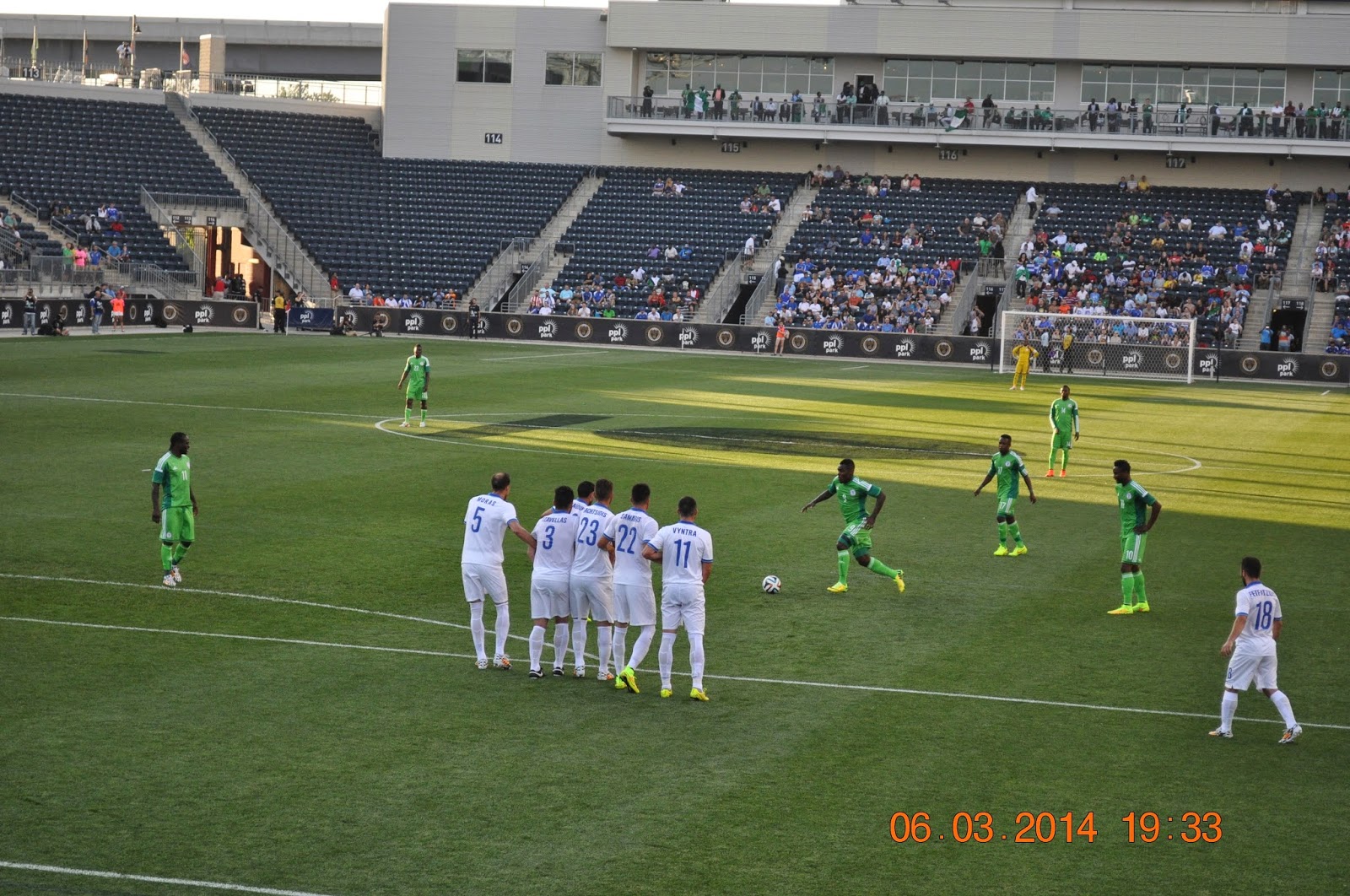Return of Keshi: The Pros and Cons
The return of Stephen Keshi as Nigeria’s national team coach
is clearly an anomaly but one that may or may not bode well for Nigeria’s
soccer in the near future. Nigeria has experienced the re-appointment of
coaches including Shuaibu Amodu and Adegboye Onigbinde. However, never before
has Nigeria re-appointed a coach immediately after he was terminated except in the case of
Stephen Keshi. In 2013, Keshi abruptly resigned after winning the Cup for African Nations (CAN) but was persuaded back through intervention of top government officials. In the midst of the 2015 CAN qualifiers, the NFF announced that Keshi was fired even though Keshi was not under contract. However, the NFF reversed itself following pressure from top government officials. Now this! Below, we make a
case on why a renewed contract may bode well and we also make the case why it may
not. You take your pick.
Why It May be a Good Move
Here are five points why it may be a good move on the part
of the NFF.
1. There is no coach who does not have a poor run
of results as Stephen Keshi had after reaching the final 16 of the World Cup in
2014. The NFF know that Keshi has proven that he can produce results as was the
case in qualifying tiny Togo to the 2002 World Cup finals, winning the 2013
Africa Cup of Nations with Nigeria, taking Nigeria to its first ever CHAN and
finishing third, finish among the World’s top 16 teams at the 2014 World Cup.
Moreover, the frequent mention of Keshi among finalists for coaching jobs
across the continent denotes his enviable reputation in Africa.
2. Keshi is a proven motivator as has been acknowledged
by several of the nation’s top players and mentioned by journalists who have watched him closely at work. Early last year, journalist Colin Udoh writing for The Telegraph wrote as follows:"No shouting, no anger, just plain, clear-eyed motivation. He (kasha) motivates his players individually and as a team."
3. Keshi has become the first Nigerian coach to return to a true integration of home-based Nigerian talents with those playing abroad. This was
an area that had been problematic since the 1990s and Keshi’s introduction of
an ongoing training camp for locally based players did not only produce new
faces that were introduced to the main team but helped Nigeria to develop
players for the country’s first qualification for the CHAN. His appointment may
well continue this strategy.
4. Under Stephen Keshi, the team has possessed the
football on more occasions than Nigeria’s opponents and has been rarely
dominated. This was not always the case with previous Nigerian teams.
5. The NFF with the renewal of Keshi’s contract may
have voted for continuity. Continuity is an area that Nigeria has sorely lacked
in the past with its penchant for pulling out the hook as soon as a poor result
occurs. Continuity may well bring better fortunes because of team stability and
the building of team chemistry especially in today’s national team where
training opportunities are scarce and far between.
Why It May be a Bad Move
Here are five points why the decision may be a bad move.
1. Above all, the constant acrimony between Keshi
and the NFF is not good for Nigeria’s football and there is a strong reason to
believe that this acrimony will continue.
2.
Ahead of Keshi’s hiring, NFF had publicly
announced a new back room staff for the coach. It is also believed that the NFF will name some members of Keshi’s technical team. This is a far cry from
Keshi’s previous tenure when Keshi controlled most decisions pertaining to his immediate
staff. This NFF 'capture' of Keshi's previous roles may be a recipe for future conflicts among the national team staff
under Keshi. Not good.
3.
Keshi has tended to stay loyal for long to some of his
favored players and this often affect sthe team’s productivity. This is
exemplified with his decision to stick with Sunday Mba when Mba’s
productivity was declining. Same with Brown Ideye. This loyalty to out-of-form players may close out opportunities for new and younger talents.
4. This renewal signals a dangerous and deeper incursion of government
interference in Nigeria’s football. Direct government interference in NFF’s hiring of a coach
has been rare, particularly from the highest point of Nigeria’s governmental
authority. This type of interference prevented the NFF from replacing Keshi
during the 2015 CAN qualifiers and helped delay the
announcement of a substantive coach almost 10 months after Keshi’s contract
expired!
5. It appears that in renewing Keshi’s contract,
the NFF won concessions giving football administrators powers that will
increasingly infringe on the coach’s role in player invitations. This
cannot be good for the future of Nigeria’s football. Another coach would most
likely have rejected NFF’s interferences in player invitations.
Nigeria will now turn towards the 2017 Cup of African Nations qualifiers next June. However, the decision to renew Keshi's contract will likely be an underlying issue as Nigeria battles in the toughest qualifying group. Time will surely tell on whether it is the pros that outweigh the cons or the cons outweighing the pros in the decision to renew Keshi's contract.




Comments
Post a Comment